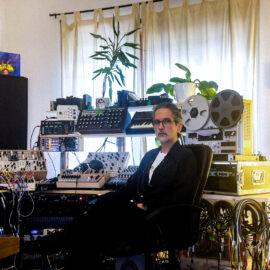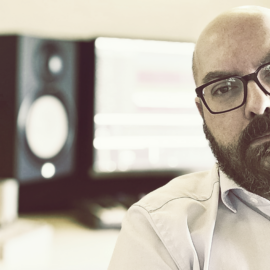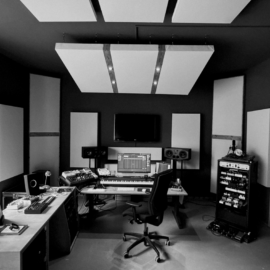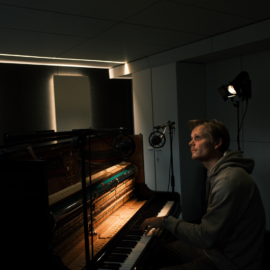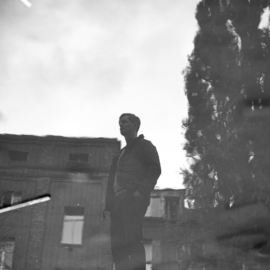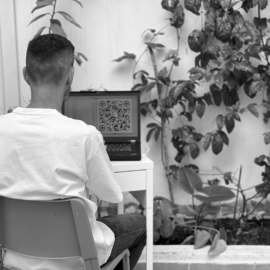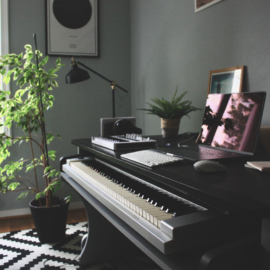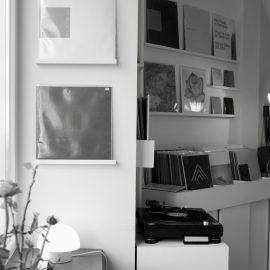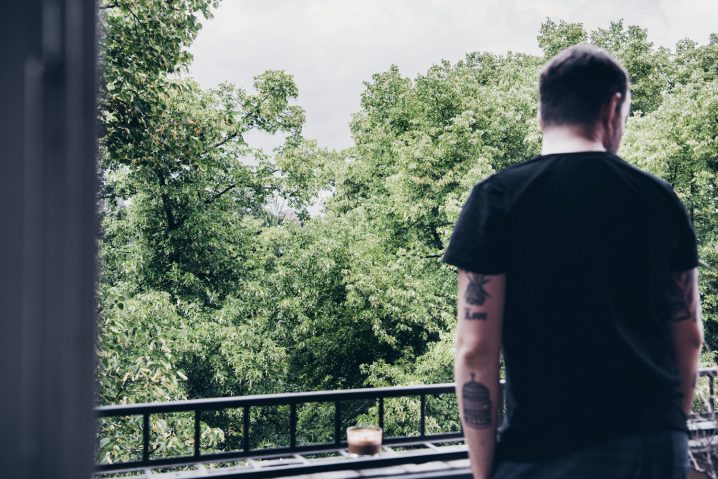
Lets start at the very beginning. Can you tell us how you got involved in composing, and what was your very first piece of gear?
That was quite early in my life. As music and art enthusiasts my parents surrounded me with both these things from the very beginning. A lot of classical and also quite left field rock and also my brothers always showed me what they were listening to. There was something missing for me though – some element(s) or moods i wanted to hear did not come up in the music i was shown, mostly because i was not aware at this point, i was maybe 9-10 years old, that you could potentially twist and turn music in a million ways.
I discovered electronic music around this time too and it became crystal clear to me that the things i’m missing were included here – the idea to blend both of these worlds, the classical one i’ve been raised with and the electronic one, which was completely uncharted territory to me, was the only way forward.
The first piece of gear i owned and that took me a lot closer to this plan was an AKAI MPC2000… i’m still amazed how much this thing could do with only 1,9KB of RAM… I spent years (at least it feels like years) with it and without a computer or any other equipment which made me understand this thing very well and, in hindsight, tought me a lot about the miracle that limitation in composition is.
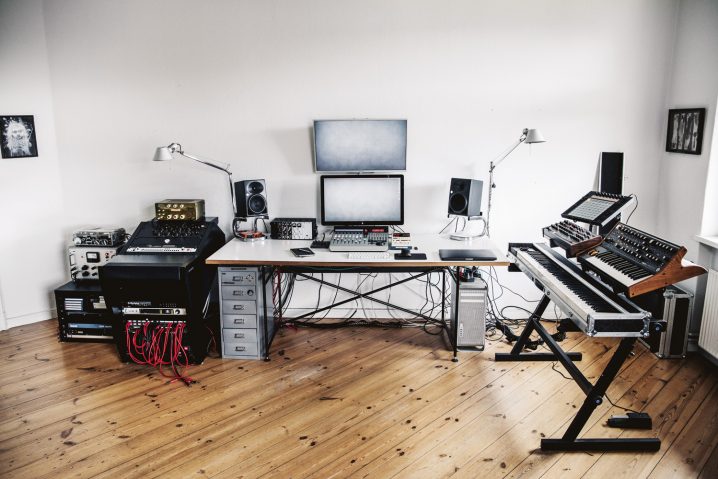
How many different studio iterations have you gone through, and what does your final setup look like right now?
Not that many – it was more like a constant build and exchange of things. Since i’m no recording artist in the classical sense a lot of gear is not as important for me like i wish it was… preamps, instrument microphones etc…
I started with the MPC2000 mentioned above for a long time only and added some really crappy but gigantic hifi speakers as monitors, a ZOOM 1201 FX and a 4 track Yamaha MD 4S minidisk recorder.
I have to say that these were actually fantastic times – i didn’t know a lot about recording, mixing, programming or engineering and in this absence of knowledge was a great blessing really. I experimented and it was just a very unconcerned and uncomplicated process. I try to maintain this until today, however i’m surrounded by people that are very experienced and knowledgeable about gear and engineering and they help a big deal understanding the necessary technical parts of my work. My setup today is a result of remaining naive and at the same time adding functionality.
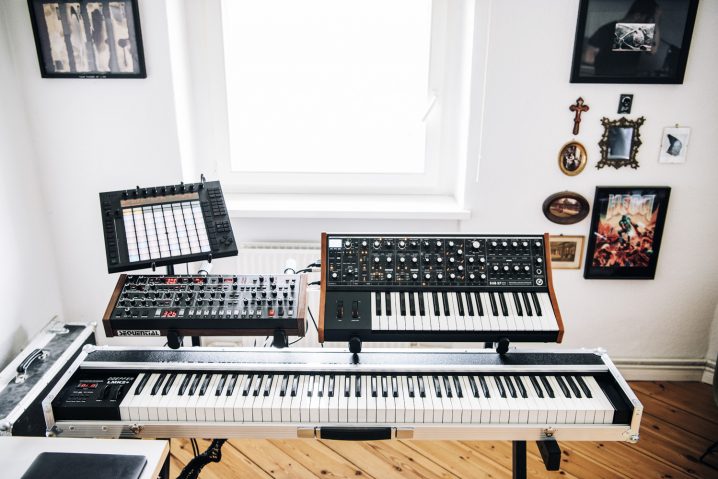
Tell us about your favorite piece of hardware.
That’s tricky – most of my hardware is handpicked for very specific reasons so i really like all of them a lot. I’m a reverb addict and was looking for a stereo tube spring reverb (which seems to be rare and/or unaffordable) …which is why i was very happy to find Rerun Electronics, a small but exquisite studio in Berlin that builds custom gear of all sorts. He built what he called „The 235 Spring Reverb“ for me. It’s two sets of springs, one short pair (the 2) and a longer one (the 3) and the option to switch them in parallel (the 5) all run through a nice array of tubes. From a small, metallic room – almost only a touch of room-y dimension, to a hellish cave – this one has your back. I love what it does and how it looks and feels. So this unit has it’s own pedestal but so do all there others.
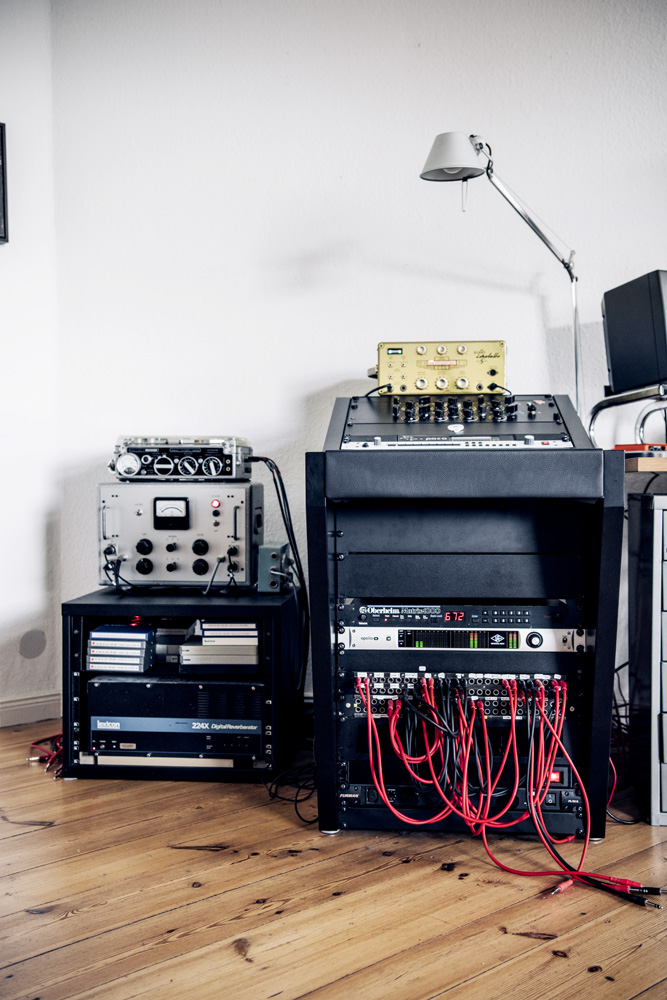
And what about the software that you use for production?
My main DAW is and was Ableton Live (since version 2 i think…). I pair this with a lot of Arturia synths and quite a few piano and instrument libraries (from 8Dio, Spitfire and Izotope for example…) For mixing inside the computer (as opposed to analogue mixing, which i do depending on the material) i mostly use UAD plug ins and the really well made Flux plug ins. I think my main criteria for software is that it does the digital part (in sound and function) and leaves the analogue part to the outboard gear. For instance, the ePure EQ by Flux is great for real surgical and technical work on single tracks, while my outboard EQ brings back some depth and feeling back to premasters.
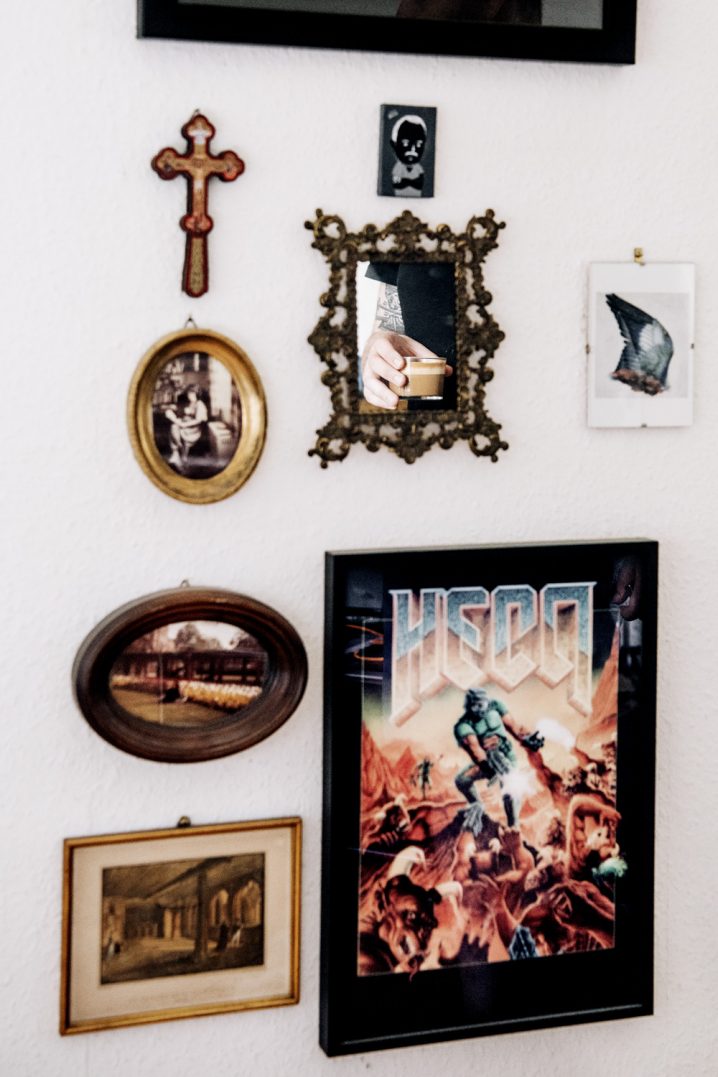
Is there a particular piece of gear that you’re just dying to get your hands on and do you think one day you’ll have it?
I really like the idea of having one dedicated piece of gear for every step in the production process. Right now i’m missing a rock solid outboard compressor – and since no one can stop you from dreaming, i’d say i could live with a Fairchild 670. The chances of owning one are next to nothing really but this would be what i dream about every now and then.
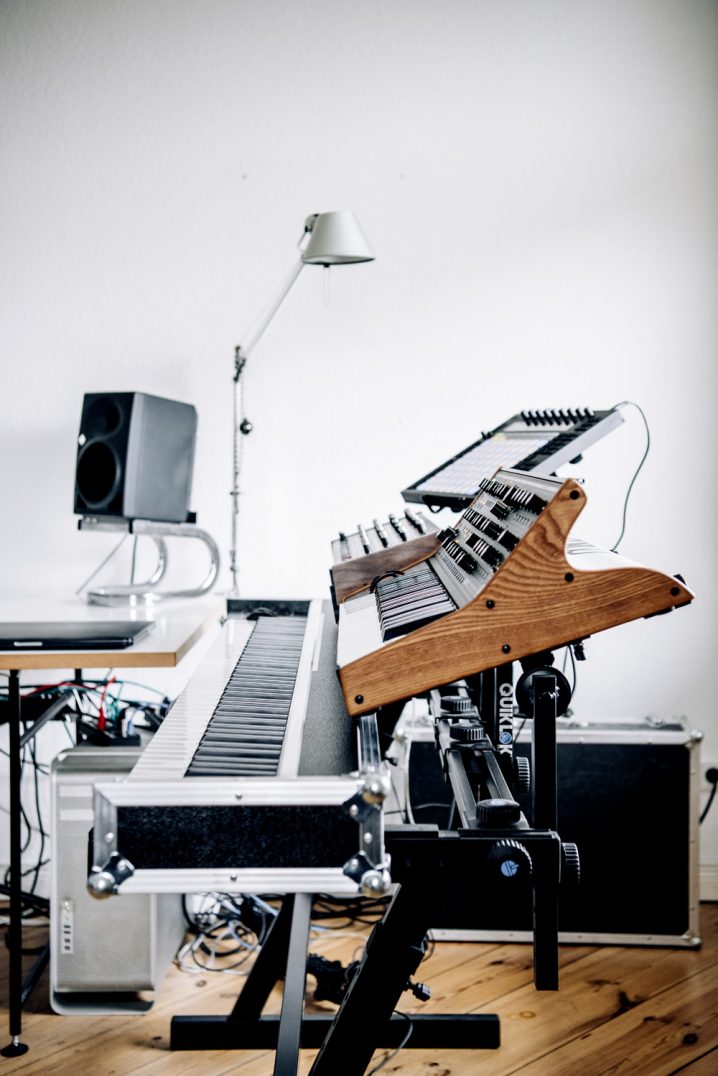
Can you please share some aspects of sound design in your work?
I feel the hybrid between digital and analogue helps a lot establishing an interesting sound. While i agree that most analogue gear really does sound wonderful and warm – sometimes it’s simply not better. Sometimes i really want the very cold, clinical ones-and-zeros digitalism of computers. An example of this hybrid could look like this: i needed the sound of fireflies for a project once. The scene in this project required the sound to be subtle but still quite isolated which again means the sound needed to be very convincing (even though i personally had no idea how fireflies would sound). I recorded the ripping of fabric and filtered everything but the very high frequencies and edited these recordings. The result was something like a constant but very gentle flight of sparks through the air.
Another example is that i reworked the recorded strings on both Gravity and also Spells very often into pads and plain atmosphere layers beyond recognition. I love turning a very direct and handmade source into an almost metaphysical new thing – that’s where digital tools of any kind can be extremely helpful.
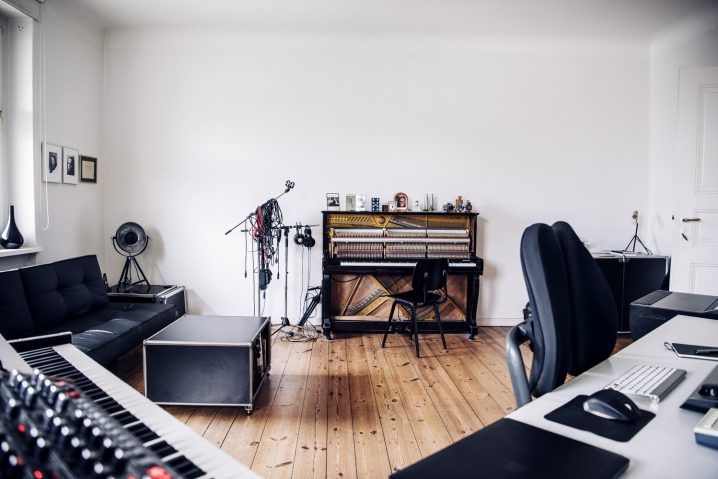
Any particular new techniques that you tried out for your new album?
Blending machines and human beings i’d say. This might sound a little vague but ultimately this was probably the core of this album. Most of the tracks are completely computer generated at first and needed to be interpreted by instrumentalists who changed the course and feel of the songs dramatically. I also really enjoyed the different ways we recorded the instruments. Some parts where recorded with me, others completely remotely and autonomous from my input – this gave some songs a fantastic twist to my original idea. Other than that i tried to oppose digital and analogue as good as possible, which means, most digital instruments would get an analogue treatment within the mix and many instrumental parts got the full digital effect treatment.
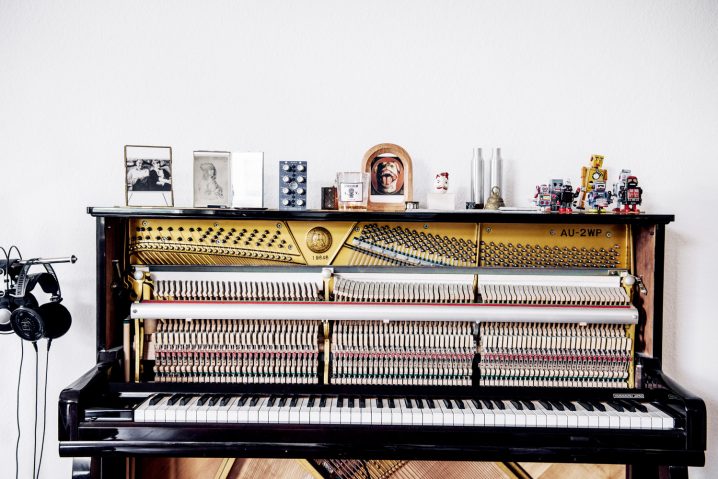
Talk a little about the piano notes for Spells – how did you record the sounds, sequence and arrange them?
These are all programmed by combining various libraries and editing all the notes as precise as possible. So i did not record the piano at all but utilized very well made libraries. I can play the basic chords of most tracks but to give the songs some of the human touch back i have to arrange and edit the piano takes a lot. This is easier when you get the recordings of the other musicians back which are obviously more organic.
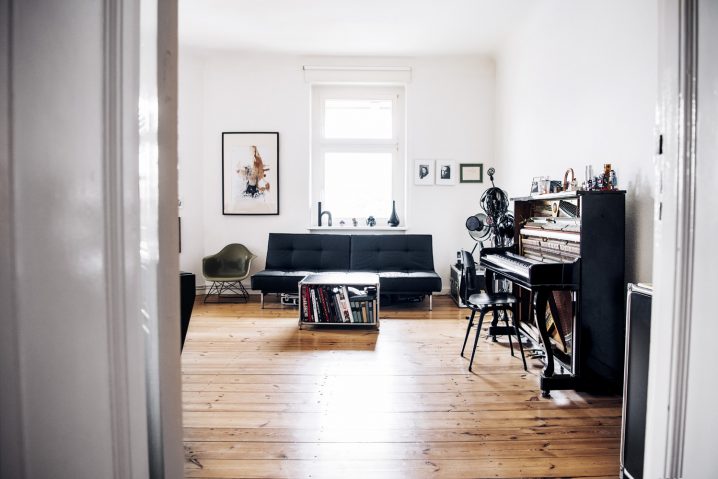
What does your live setup look like, and what do you bring with you when you travel for an extensive tour?
There’s no live setup at the moment as i’m still developing this. I don’t come from a live playing background whatsoever (with the exception of a some DJ sets in the past… if that counts as live) so this is all very new for me. At this point I implementing my Sequential Prophet 6, my Moog Sub37 and the generated pads and synths from my laptop on my end but would depend on the live musicians to be there with me. That would be a drummer, a harpist and 1-3 cellists for now.
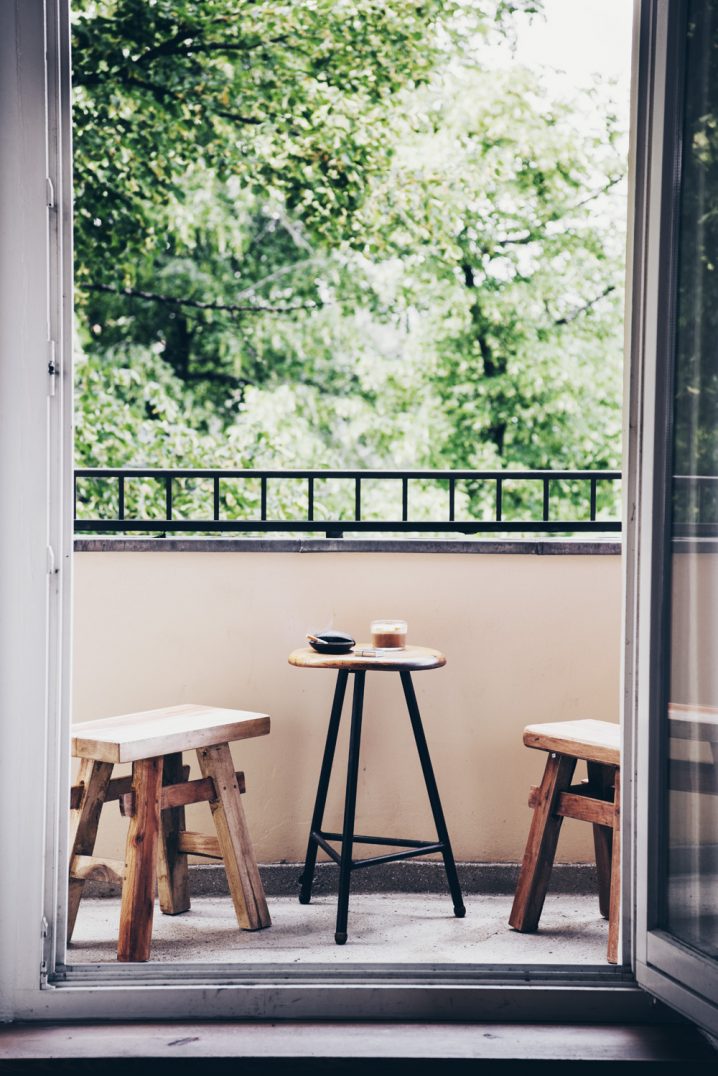
What is the most important environmental aspect of your current workspace and what would be a particular element that you would improve on?
I need to feel at home and relaxed – which is why my studio is also in my apartment. The blessing here is also the curse – you are in a very familiar environment but at the same time you don’t get out that much and can’t unshackle yourself and your head from work – something that might change in the future but for now the pros outweigh the cons. I’m close to the coffee machine AND the synths – that matters to me.
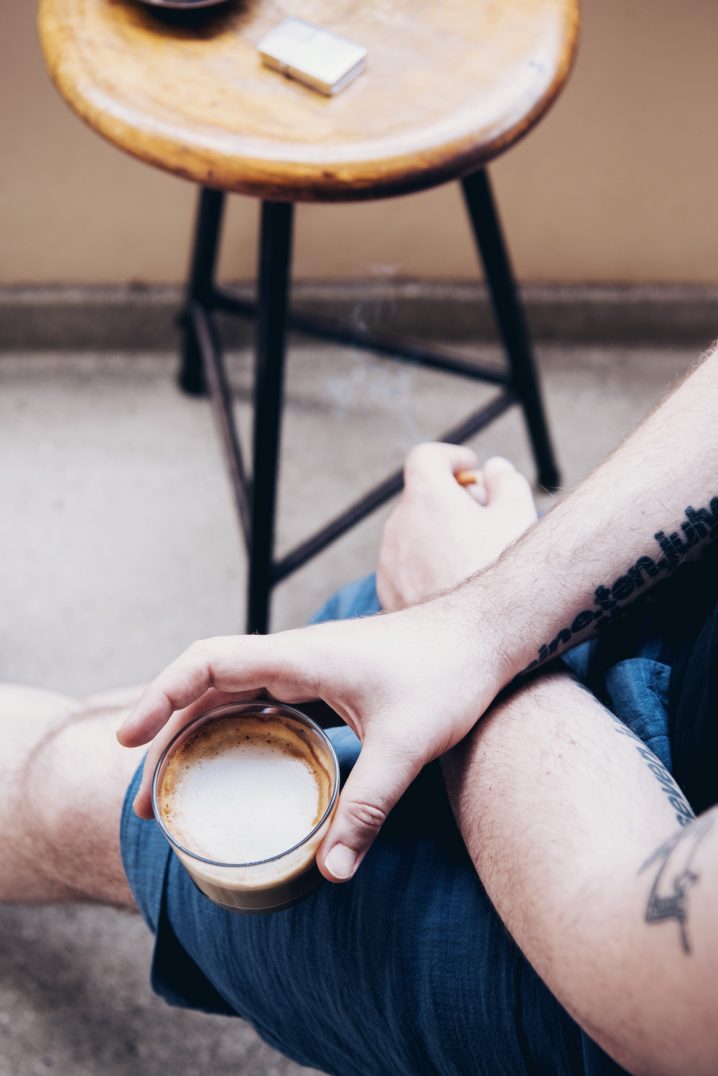
What can you tell us about your overall process of composition? How are the ideas born, where do they mature, and when do they finally see the light?
Ideas are born all the time… while talking a walk, while getting to sleep, while doing dishes etc… The tricky thing is to make sketch and shape them right away. Often it’s very simple melodies and themes or patterns that go through my head… and very often i’m not in the studio when they pop up. They develop and grow on the way to the studio and once i have the basic idea drafted they can develop into an actual composition – which can take weeks hours, weeks or months – this is really different from song to song. There is a moment however when i know a song is done. There was a time when i had issues letting a song go or rather accepting it as what it was but over time i found great pleasure in the imperfections and possibility that writing a new song offers. The things you would improve on one song will somehow transcend into something new, keeping the motivation and compositional process in motion. In the end, the existing flaws of one one composition are the potential benefits of the next one.
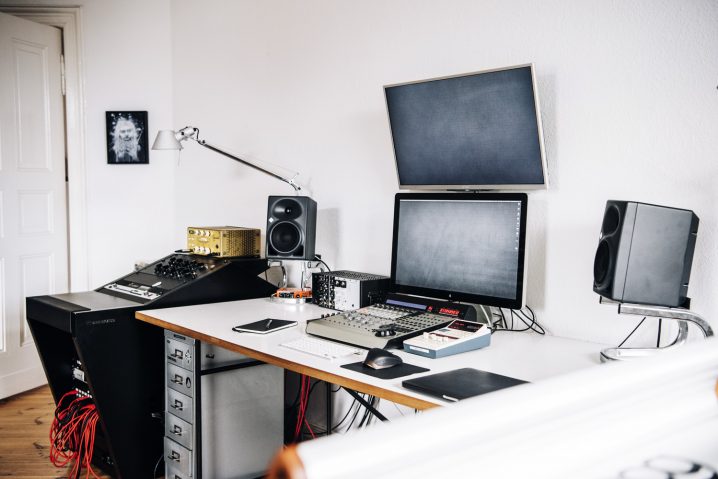
After the piece is complete, how do you audition the results? What are you reactions to hearing your music in a different context, setting, or a sound system?
The first step is to have at least 6-7 hours between finishing the song and listening to it again – that’s over night normally. After that i’ll have the mix downs or premasters on my phone normally – listen to them in every day situations. This not very hi-fi solution is quite important to me since i want to hear if the songs work outside of the controlled environment that is the the studio. This is the easiest way for me to focus on any mix or structure issues. This does not necessarily change the mood of the song but the atmosphere i’m in changes around it and adapts to it.
I use a pair of Neumann KH120 to monitor but that’s why i need alternatives of different kinds to evaluate any mix. I either listen on a Harman Kardon Aura in my home or on Audio Technica ATH R70X for both mixing and auditioning final mixes. The next time things changes quite drastically is in the mastering studio when i hear the song change – by then i usually heard it or them hundreds of times – and, in case i can’t be present during the mastering, when i get the master back.
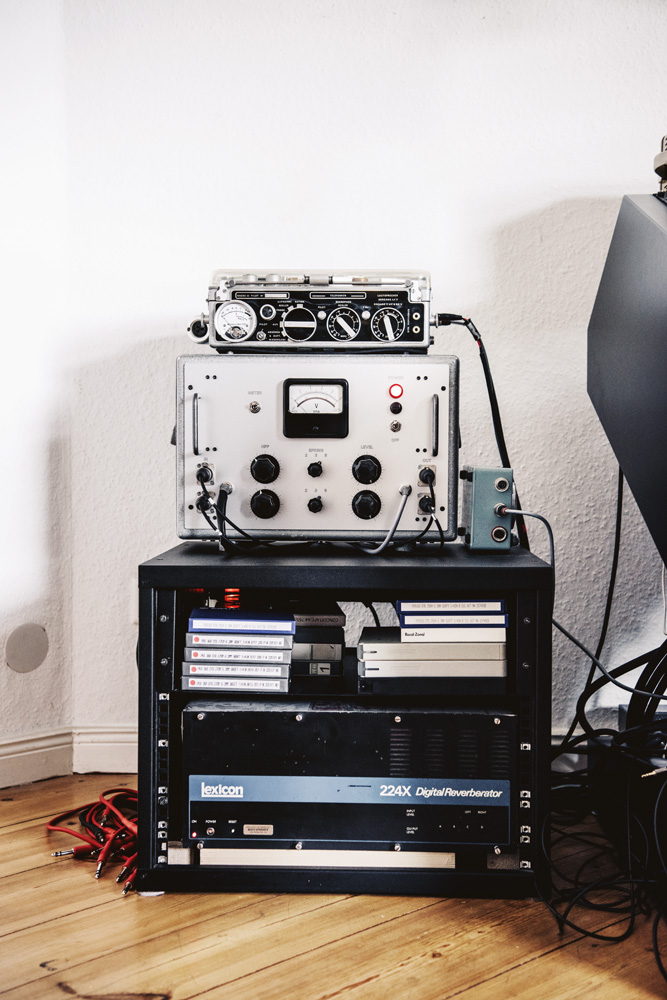
Do you ever procrastinate? If so, what do you usually find yourself doing during those times?
Oh god yes… Normally any kind of dinner or food situation is always a good excuse for me to take a break. Also often do some impulse record shopping and coffee breaks and my character level in Fallout 4 is much higher than it should be… Basically enjoying life in company or solitude is key for both work and free time… procrastination, in my interpretation, is actually fuel for the next or ongoing project.
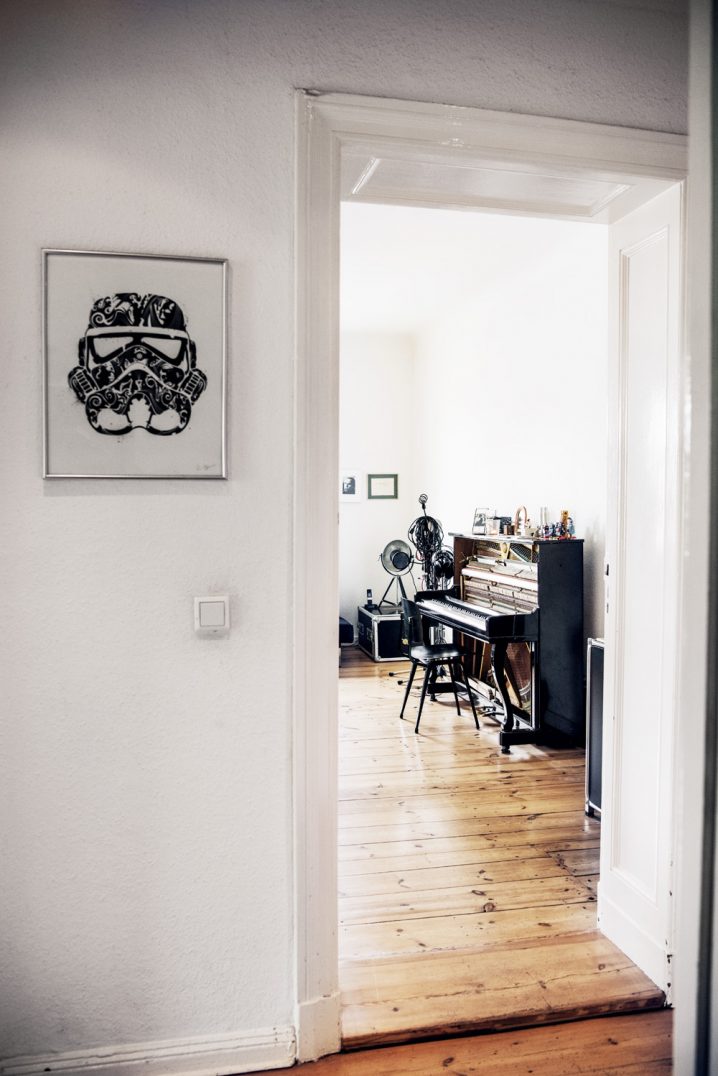
What gets you inspired?
Good stories in any shape and form. Personal experiences, things that friends and family experienced, movies, games… i should read more (or any) books but i found it very very hard to focus on reading anything for as long as i can remember. I know i’m missing out but i hope to overcome this insufficiency at some point.
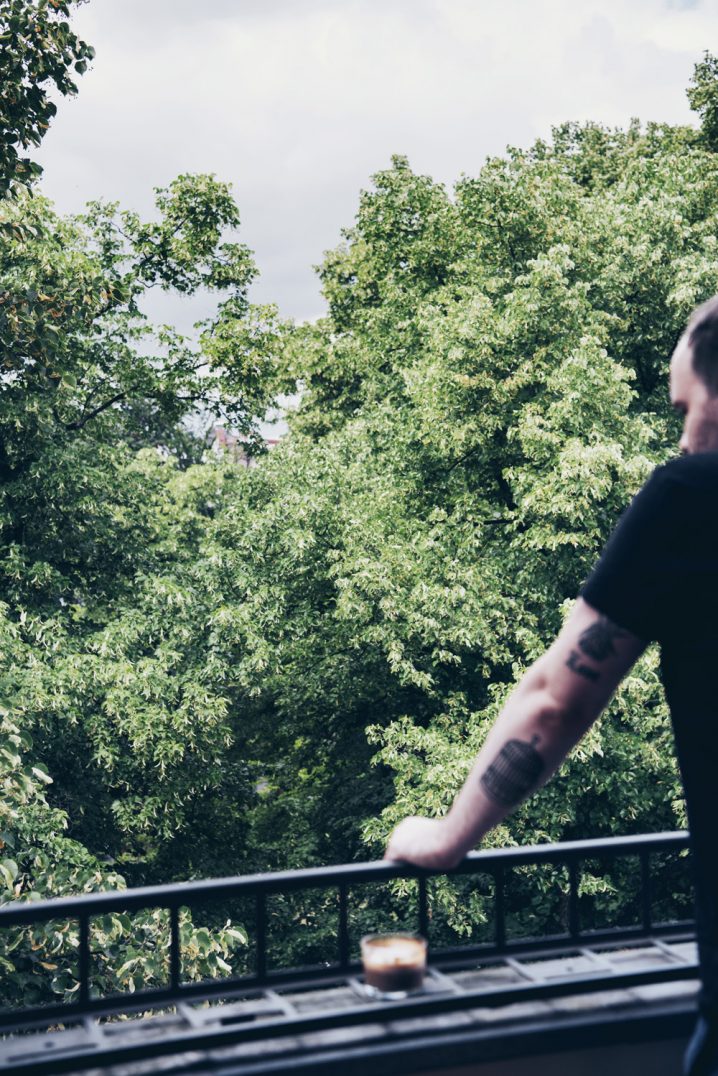
And finally, what are your thoughts on the state of “electronic music” today?
This could fill a complete interview on its own actually. I’ll try to keep it short. I I find myself going back to the records of my youth when listening to electronic music. It seems they still have the biggest impact on me. I hardly find this feeling of excitement and these days. I don’t blame artists for this obviously – i’m sure my needs, experiences and listening habits just changed over time but i do feel a little disconnected from todays electronic music. The production and emotional standard is often not mine anymore so i begin to feel that I’m part of a different generation when it comes to my requirements of electronic music and any blend of instruments, elements and styles is much closer to my heart.
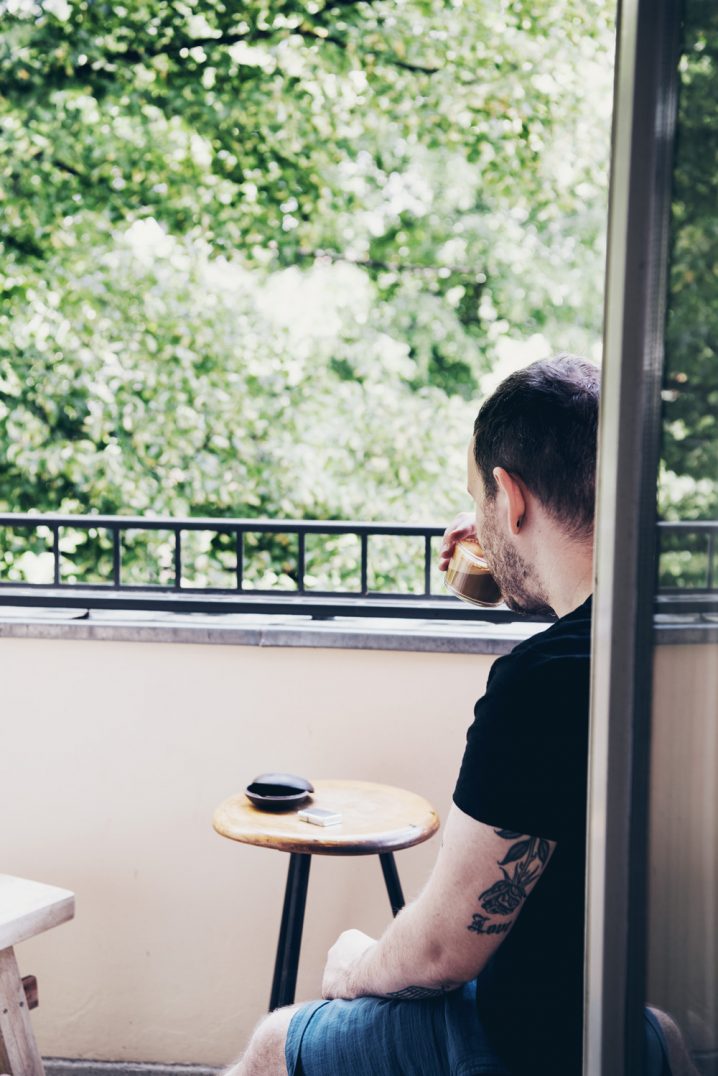
Photos by Claudia Gödke / claudiagoedke.com
